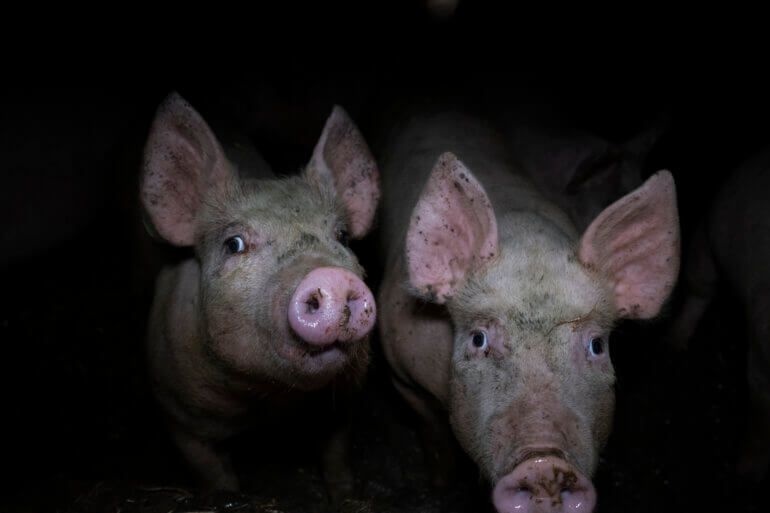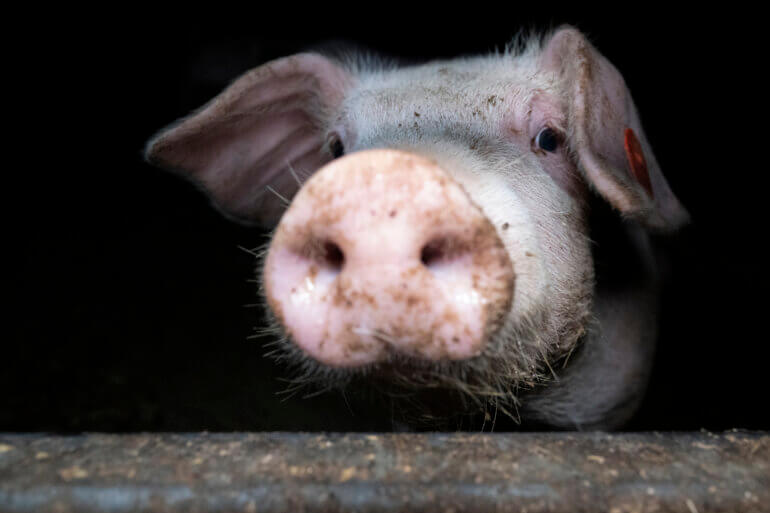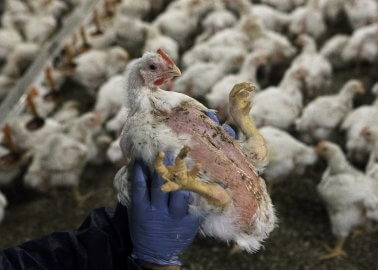Why You Can’t Trust Meat Assurance Labels
Britain’s leading animal welfare charity, the Royal Society for the Prevention of Cruelty to Animals (RSPCA), has a long, proud legacy of saving the lives of countless cats, dogs, rabbits, and other companion animals. However, its farm certification scheme, RSPCA Assured, condones the routine suffering and killing of millions of chickens, cows, pigs, sheep, turkeys, and their babies each year across the UK. A new investigation exposes this speciesism and shows the public why it can’t trust meat, egg, and dairy assurance schemes and why the only label it can trust is one that says “vegan”.
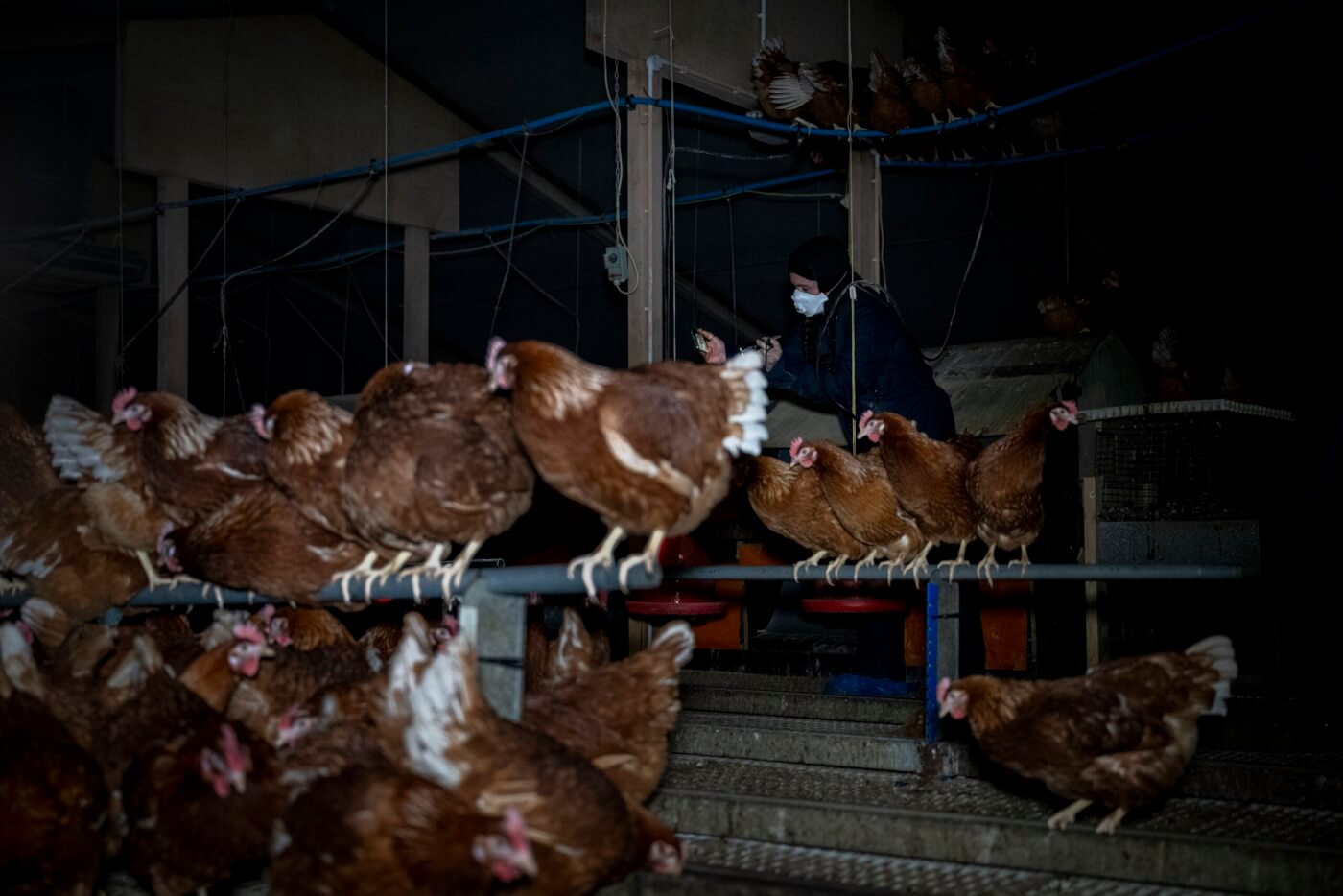 Animal Rising
Animal Rising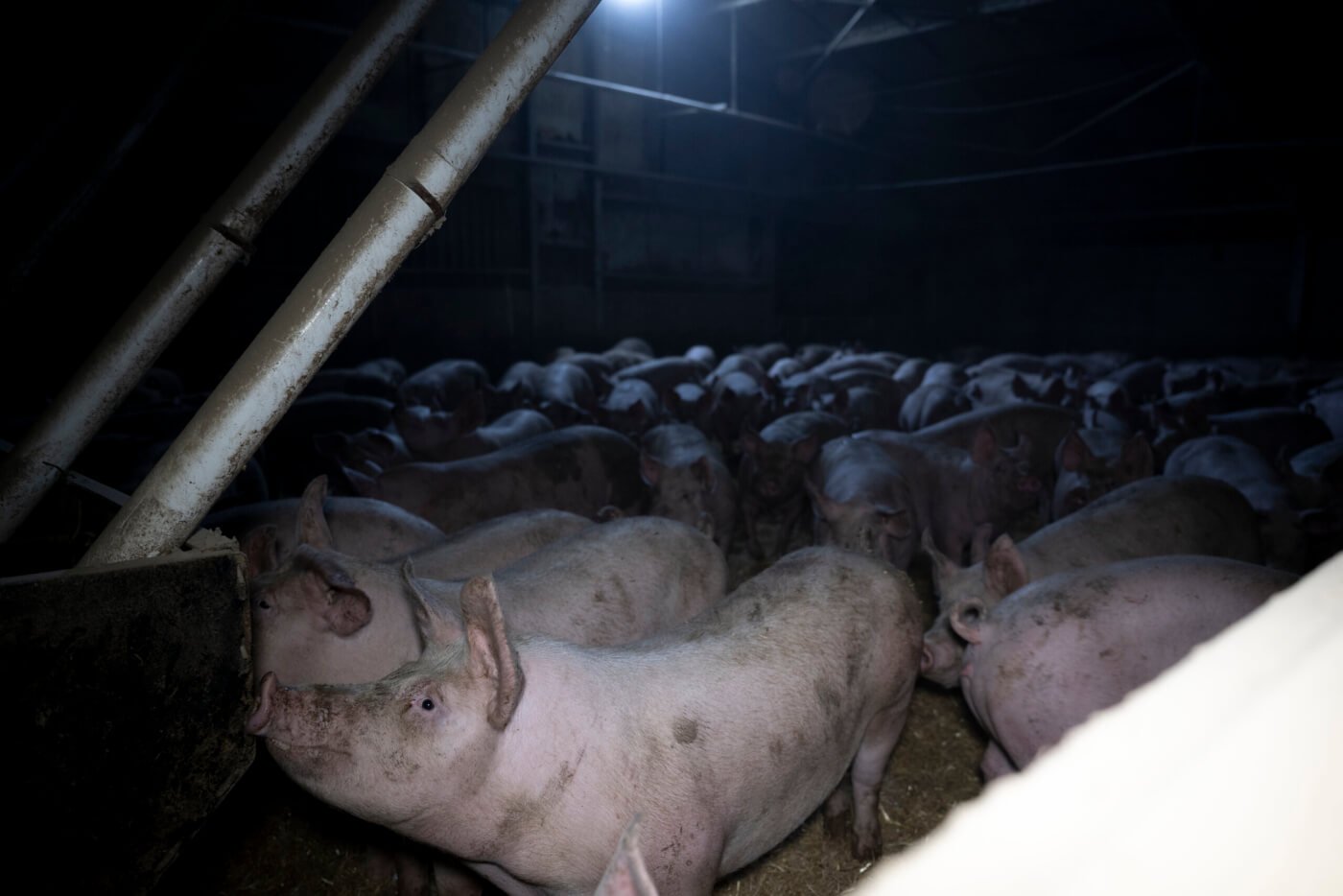 Animal Rising
Animal RisingFootage From RSPCA Assured Farms
The RSPCA’s scheme promises that animals on certified farms are provided with “enriched living conditions” and “space to move” and are killed via “humane slaughter”. Yet this often means merely token gestures, designed to appeal to people with an uneasy conscience who are looking for excuses not to change their habits. These gestures do little to protect animals from the systematic cruelty inherent in meat, egg, and dairy production. PETA founder Ingrid Newkirk has explained why “high welfare” schemes are misleading through the following analogy: “Yes, kicking the dog six times a week instead of seven is marginally better, but that doesn’t mean that we should go around suggesting that people kick the dog, just not as often, does it?”
Giving animals a few extra inches of prison cell hardly makes up for a lifetime of misery, spent in confinement and being subjected to mutilations, followed by an early death. And it in no way makes raising animals for food ethical.
The most recent investigation, conducted by Animal Rising, which gathered footage from over 45 RSPCA Assured farms over four months in 2024, shows immense animal suffering. On each farm, animals lived in overcrowded, filthy sheds, dying from lack of care. Pigs were found lying dead in the middle of pen isles, chickens died from dehydration and starvation, and fish had eyes or other body parts missing.
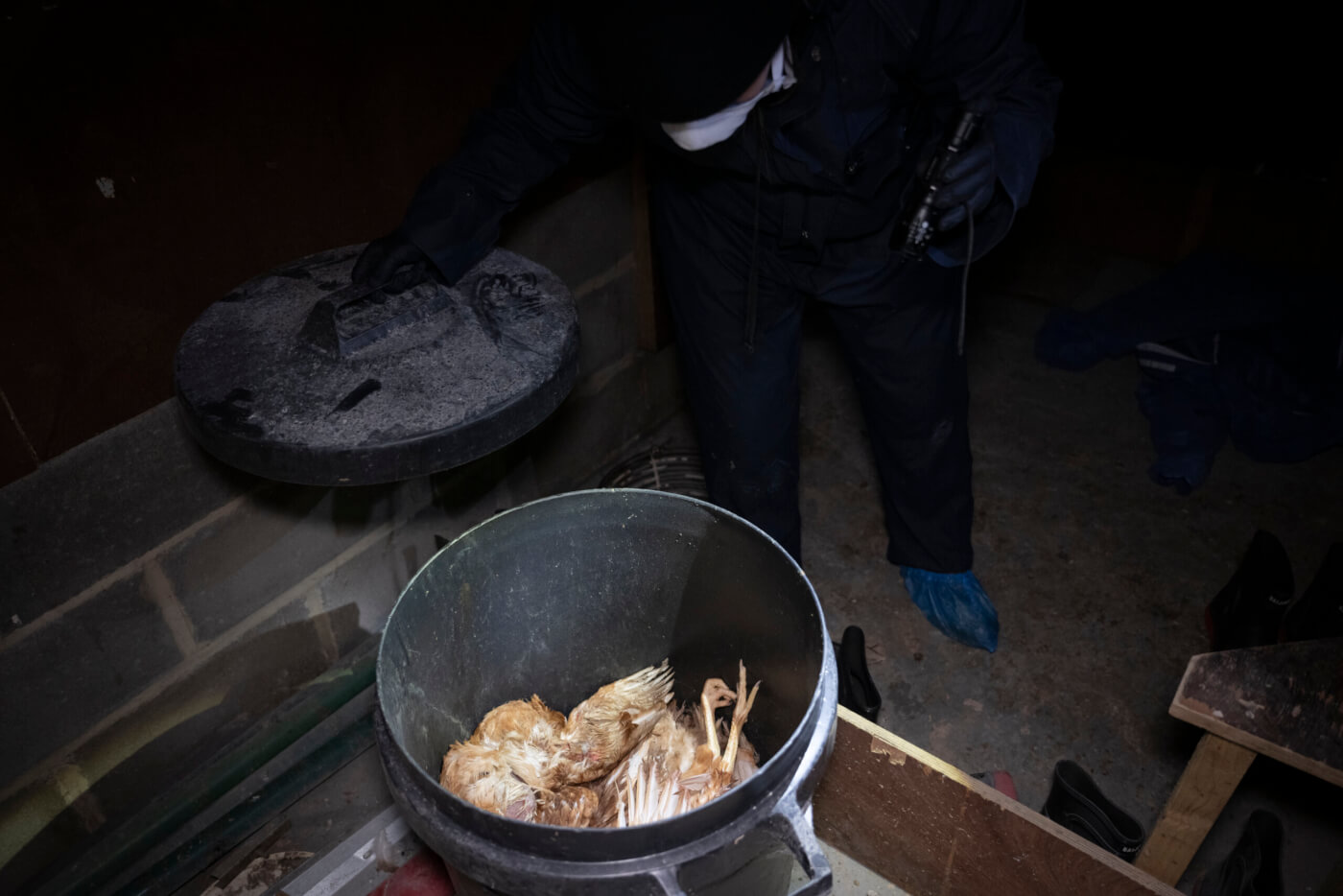 Animal Rising
Animal Rising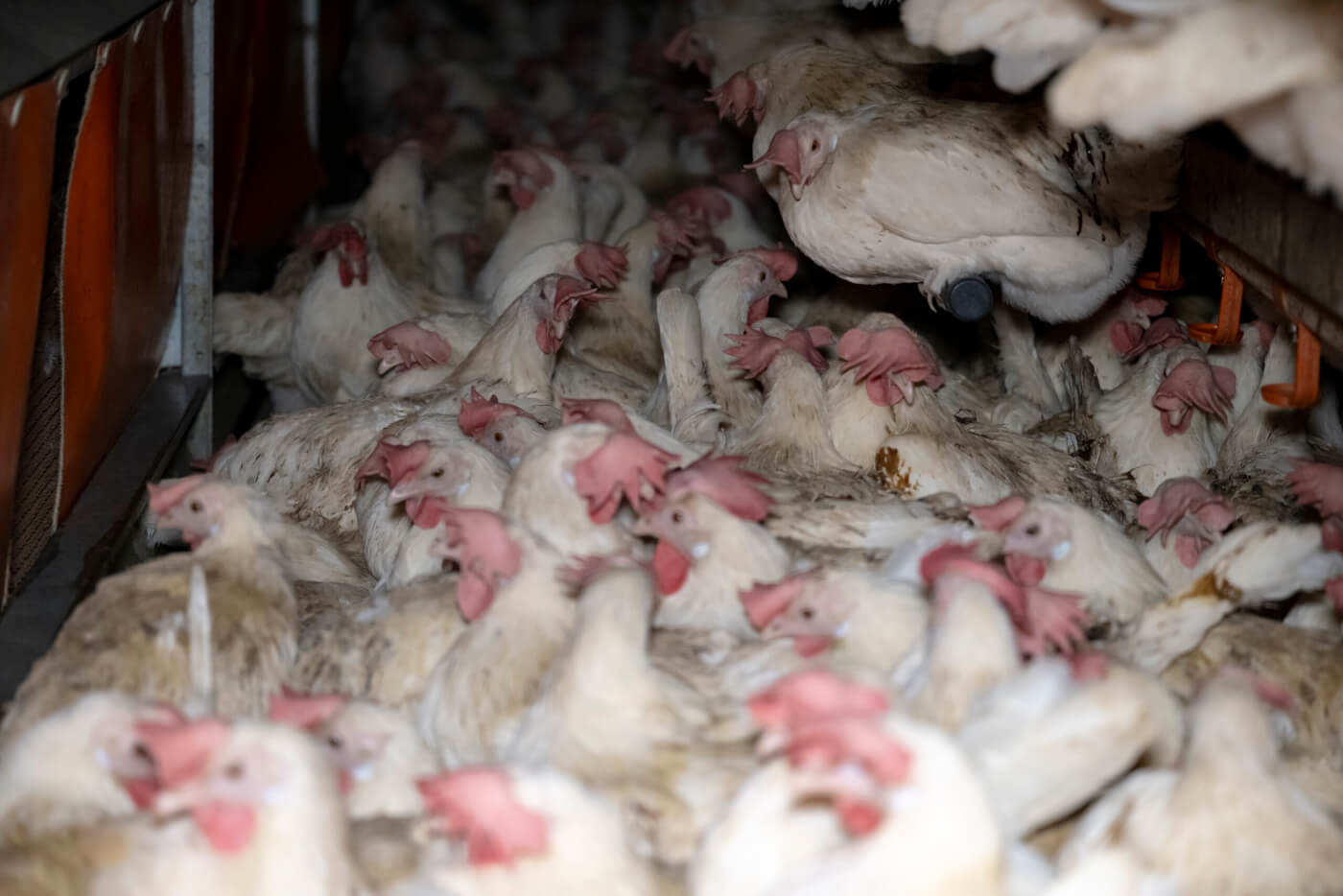 Animal Rising
Animal RisingChallenge yourself to watch some of the shocking footage captured by Animal Rising below:
This latest investigation is not the exception – it’s the rule. Countless exposés by PETA and other groups have shown that farms endorsed by the RSPCA Assured scheme treat animals like inanimate objects, not living, feeling individuals deserving of respect. In 2021, PETA visited RSPCA Assured farms in Cumbria, Herefordshire, and Gloucestershire that supply eggs to The Happy Egg Co, which are sold in all major supermarkets in the UK.
Most of the birds on these farms had portions of their beaks cut off, which can cause acute and chronic pain and, if severe, lead to persistent pain for the rest of their life. We found featherless birds with untreated wounds and the corpses of dead birds left to rot among the living.
While the RSPCA admirably rescues around 100,000 animals each year, it must stop endorsing animal farms, where millions of living, feeling beings suffer for the entirety of their miserable lives.
Please, never be duped by assurance schemes and disingenuous labels on animal-derived foods. You can ensure fewer animals suffer by choosing to eat vegan.
The Only Cruelty-Free Label Reads ‘Vegan’
There’s no nice way to slaughter a sentient individual. Regardless of the disingenuous labels farms tout, all animals will be trucked at a young age to an abattoir, where workers will slit their throat or kill them by other painful means and dismember them.
The only assured way to stop animal suffering is to adopt a vegan lifestyle.
How You Can Help
Brands get away with false labelling because the public lets them. Most consumers don’t want to think about who is on their plate. We must take personal responsibility by going vegan.
Tell the RSPCA to drop its farm certification scheme – but please don’t overwhelm its emergency animal rescue lines or other channels related to this work. Instead, you can contact the group on X:
Sharing our content may mean you also share your personal data with the chosen social media platform. Find out more here.

